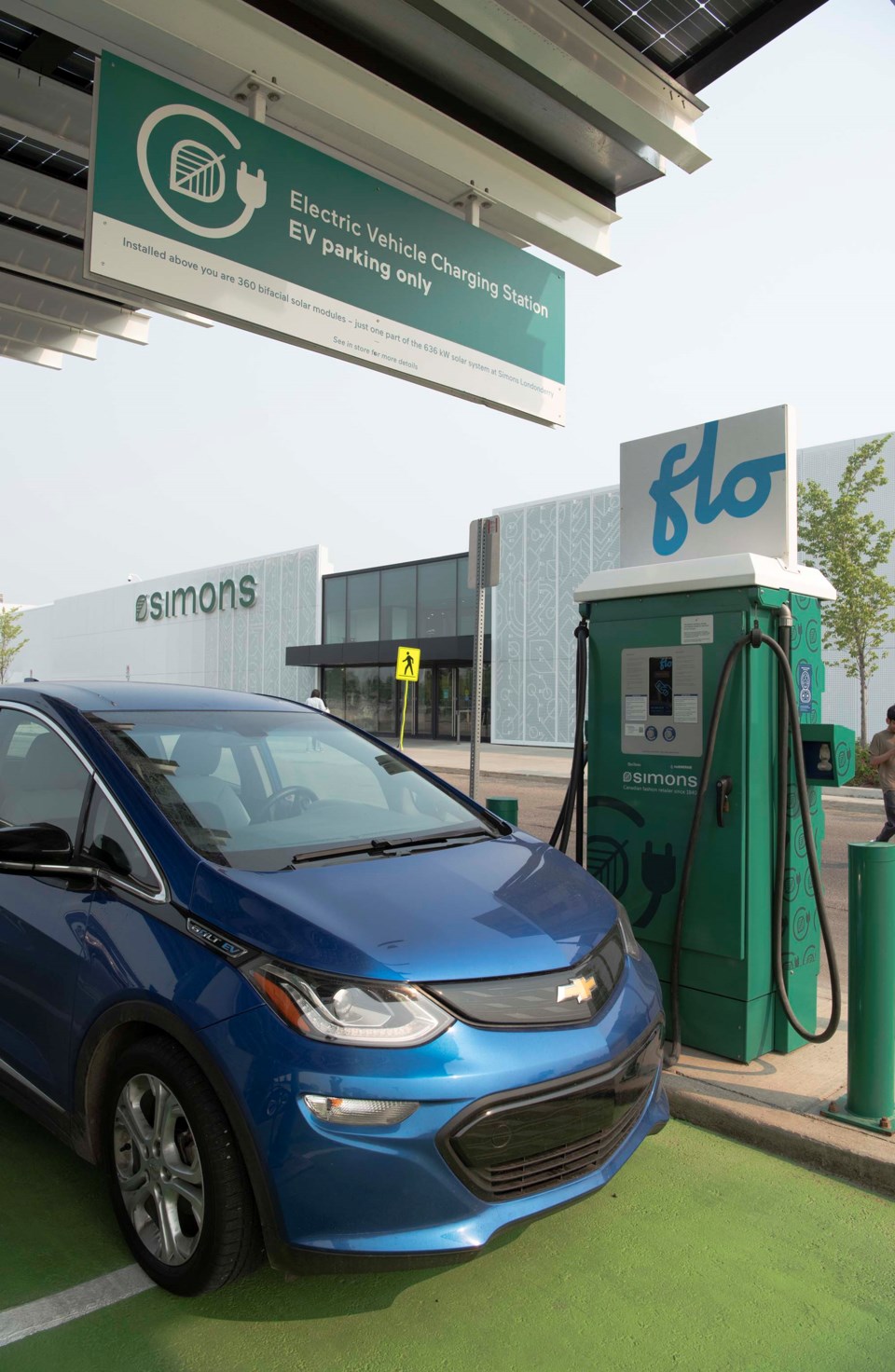Alberta drivers can take in a free talk this week on how to power their homes with renewable energy stored in their cars.
Solar Alberta is holding a free online panel talk Thursday on the trifecta that is renewable energy, energy storage, and electric vehicles. About 150 people are expected to attend.
A lot of people who get electric cars in Alberta want to charge them with renewable power, and the best way to ensure you’re getting all-green power is to produce it at home, said Solar Alberta executive director Heather MacKenzie. This leads many electric car owners to become interested in rooftop solar, and, in some cases, at-home energy storage.
Powering your car with solar is actually the cheapest way to drive, said panellist David Kelly of SkyFire Energy. A person can drive a Lexus 809 kilometres with $100 of fuel at $1.42/L, he estimated. A Tesla Model S will run for 3,300 kilometres on $100 of electricity at $0.15/kWh. Since most home-based solar systems can produce power for 7.5 cents per kWh, a Model S could travel 6,601 kilometres on $100 of power from a rooftop array. If you have an electric car and want to charge it off solar power at night, you’ll need a storage system to hold your array’s energy until it’s needed.
While utility-scale storage is taking off in Alberta, at-home storage is still relatively rare, said panellist Leone Benson-King of Energy Storage Canada. One big factor may be cost: a system such as the Tesla Powerwall costs about $18,000, with COVID-related supply-chain issues making it tough to even get such a system if you can afford one.
The economics of at-home storage aren’t great in Alberta because residents don’t have time-of-use metering, Kelly said — if they did, they could store their solar power and sell it when prices were high. Storage systems can be useful as a source of backup power in rural areas, though, or for places without reliable grid connections.
Some companies are experimenting with the use of cars for energy storage. Ford has marketed its electric F-150 Lightning as a backup power source for homes, for example. Benson-King said Peak Power is running a pilot project in Toronto to see if it can use Nissan Leafs as virtual power plants.
The talk runs from noon to 1:30 p.m. Aug. 25. Visit solaralberta.ca for details.




